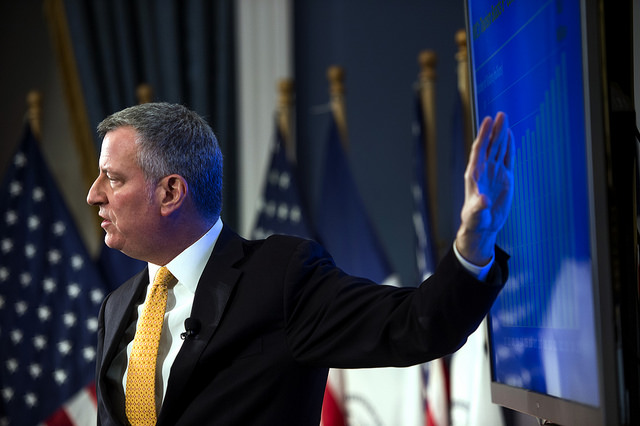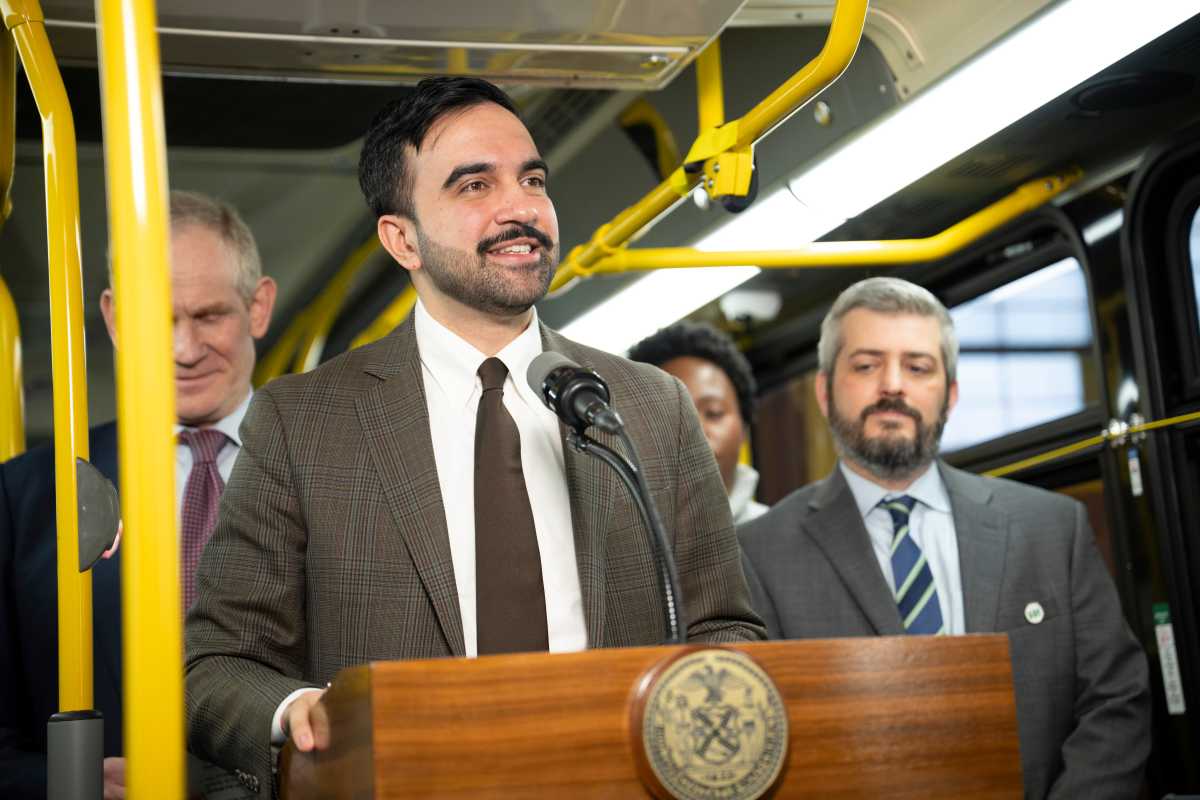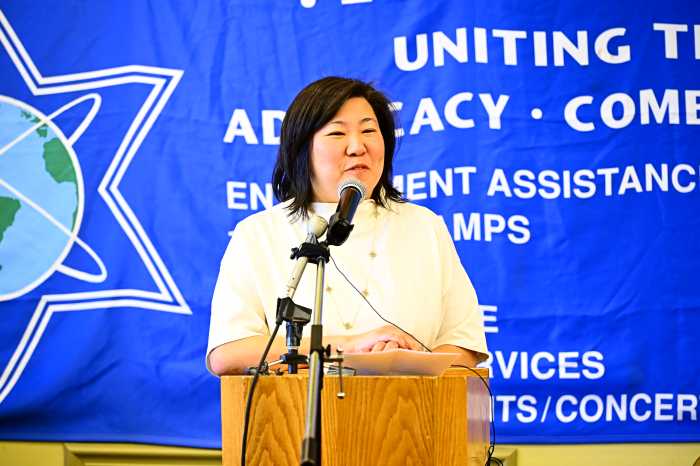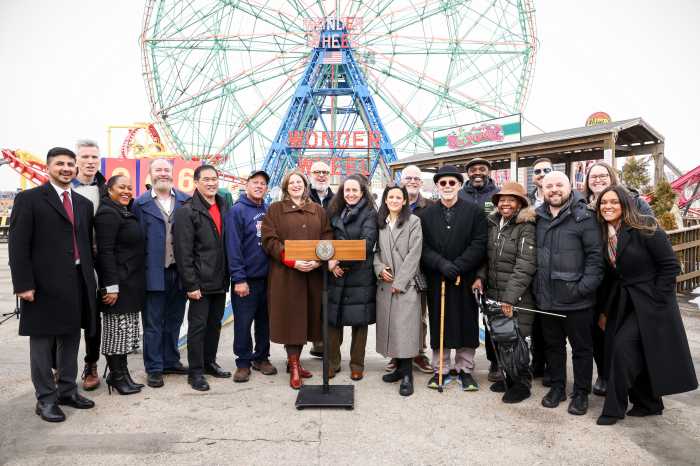Taking note of the recent downturn in the world’s economy since the beginning of the year, New York City Mayor Bill de Blasio today released a fiscally lean $82.1 billion preliminary city budget – a .5 percent or $3.5 billion increase over last year’s $78.6 billion budget.

“This budget builds on the strong economic foundation we’ve created, reaffirming our commitment to responsible government that meets challenges head on. We’re addressing the needs of New Yorkers through targeted investments in public safety, quality of life, vital social services, education, and more, while protecting the city against the many risks ahead,” said de Blasio.
De Blasio noted that they City’s local economy remained strong adding some 200,000 new jobs since January 2014 with the largest job growth with Brooklyn leading the way with a 5.8 percent job growth.
However, it’s clear that many New Yorkers are still struggling even as the economy grows – and major risks loom ahead. Wage growth has primarily benefitted the highest-paid, as income inequality continues to grow. Meanwhile, global stock markets have lost trillions since January 1, 2016, as retail sales and industrial production decline and business spending remains slow, said de Blasio in the release of his budget.
As such the budget maintains the General Reserve at $1 billion annually, is putting in $3.4 billion to maintain Retirees Health Benefits Trust Fund and $500 million to the City’s first-ever Capital Stabilization Reserve of $500 million, which th mayor established last year..
The budget does include about $700 million in spending on building on initiatives that de Blasio instituted since becoming mayor two years ago.
Among the increased spending includes $53.7 million for various initiatives to battle the city’s growing homeless population, and $49 million to end the AIDS epidemic and to care for those already infected with HIV and AIDS.
The budget also includes a $128 million capital investment to improve his Vision Zero plan that has led to a record low in traffic fatalities. It also includes a $12.1 million on the expense side of the budget for 327 new Traffic Enforcement Agents, $4.4 million to maintain speed cameras and $13 million for 100 new Select Bus Service cameras – all of which is expected to generate more income through increased ticketing of motorists.
In education, de Blasio proposes spending $76.7 million for his Equity and Excellence education initiative for Algebra for All, AP for All, college visits, district-charter learning partnerships, Single Shepherd dedicated graduation and college counseling, and Universal Second Grade Literacy.
It also ups spending $159 million to provide vital education resources to students in historically-underfunded districts, which sets up another battle with charter school advocates, who say the spending will hurt parents that want to send their kids to charter schools.
“Mayor de Blasio’s decision to allocate another $159M to district schools raises the stakes for public charter schools. If state leaders in Albany don’t unfreeze the formula and fund charter schools fairly, nearly 100,000 students are at risk of being left behind,” said Jeremiah Kittredge, CEO, Families for Excellent Schools.
But City Council Speaker Melissa Mark-Viverito and Council Finance Chair Julissa Ferreras-Copeland in a joint statement called the preliminary budget a good starting point for negotiations with the City Council, who ultimately must agree to the spending plan.
“New York City’s budget is an expression of our values and the City Council is proud to have stood up for hard working New Yorkers the past two budget cycles. There are many things in the preliminary budget which continue to keep New York City on a strong fiscal track, including continuing to keep reserves strong in the event of a downturn. We look forward to thoroughly reviewing the budget and then substantive preliminary budget hearings in the coming weeks,” the two lawmakers said.










